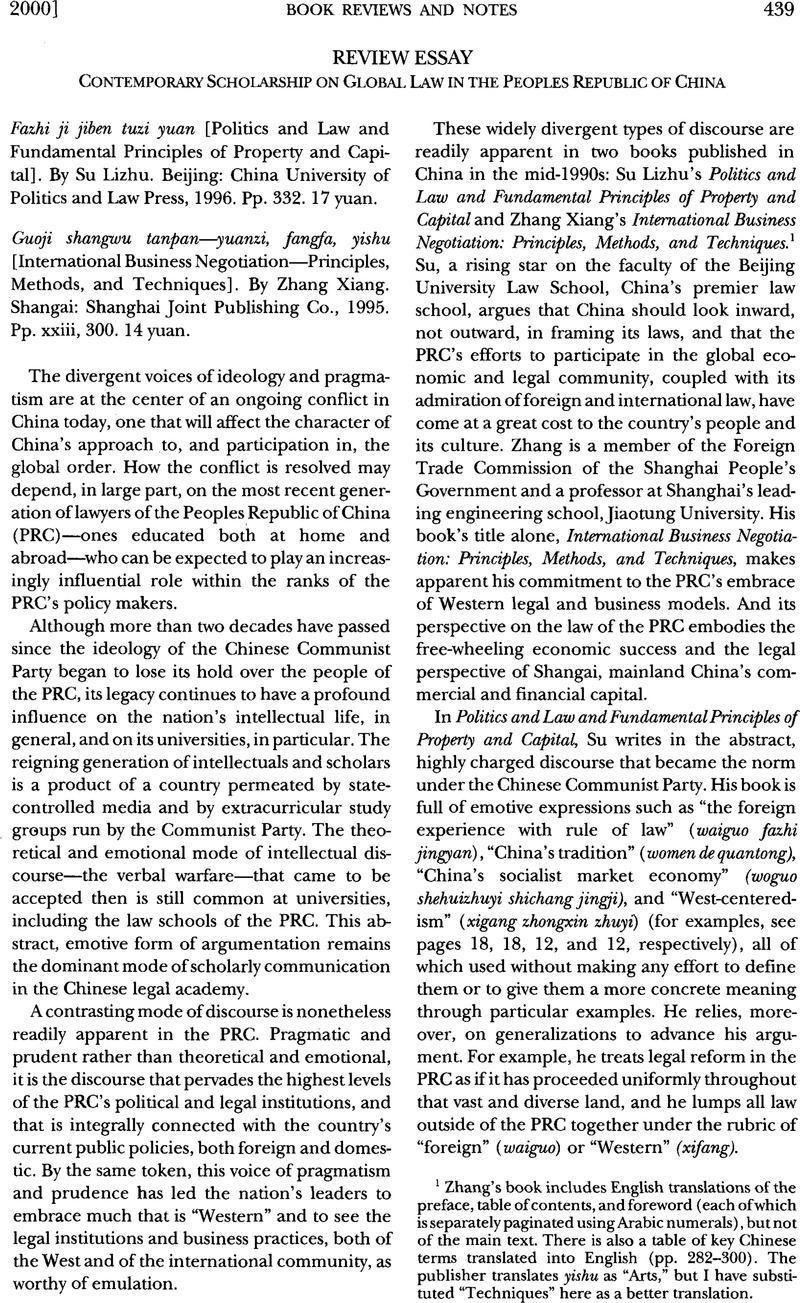No CrossRef data available.
Published online by Cambridge University Press: 27 February 2017

1 Zhang’s book includes English translations of the preface, table of contents, and foreword (each of which is separately paginated using Arabic numerals), but not of the main text. There is also a table of key Chinese terms translated into English (pp. 282–300). The publisher translates yishu as “Arts,” but I have substituted “Techniques” here as a better translation.
2 Su makes no mention here that Japan has borrowed considerably from German law.
3 William C. Jones, Some Questions Regarding the Significance of the General Provisions of the Civil Law of the People’s Republic of China,” China Q., March 1995, at 65; see also Tahirih V. Lee, Introduction, in Contract, Dispute Resolution, and Guanxi (Tahirih V. Lee ed., 1997).
4 Donald C. Clarke, What’s Law Got To Do With It? Legal Institutions and Economic Reform in China, 10 UCLA Pac. Basin L.J. 1 (1991).
5 Article 35, Economic Contract Law of the PRC, adopted and promulgated by the Fourth Session of the Fifth National People’s Congress, Dec. 13, 1981. The English language translation of the original 1981 version of the law can be found in 2 China’s Foreign Economic Legislation 15 (1986). That law was amended in 1993 and then replaced by a new contract law that went into effect on October 1, 1999. English translations of the laws of the PRC (though not the newly enacted contract law) are available through the Chinalaw Web site of the University of Maryland School of Law, <>.
6 William C. Kirby, China Incorporated: Company Law and Business Enterprise in Twentieth-Century China, 54 J. Asian Stud. 1 (1995).
7 See James V. Feinerman, Sovereign Immunity in the Chinese Case and Its Implications for the Future of International Law, in Essays in Honour of Wang Tieya 251 (R. St. J. Macdonald ed., 1993); Hungdah Chiu, Chinese Attitudes Toward International Law in the Post-Mao Era, 21 Int’l Law. 1127 (1987); Tahirih V. Lee, Volume Introduction, in 4 Foreigners in Chinese Law xiii (Tahirih V. Lee ed., 1997).
8 Shiping Hua, Scientism and Humanism: Two Cultures in Post-Mao China (1978–1989) (1995).
9 Tu Wei-Ming, Way, Learning, and Politics: Essays on the Confucian Intellectual 141–78 (1993); Hua, supra note 7, at 6.
10 Godwin C. Chu & Yanan Ju, The Great Wall in Ruins: Communication and Cultural Change in China 306–07, 320–22 (1993).